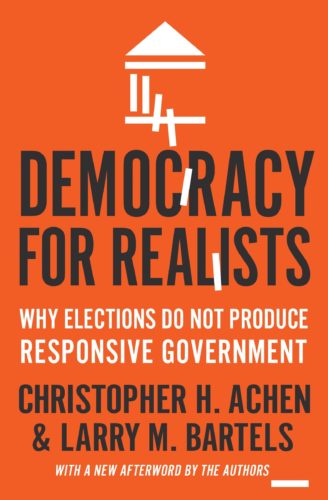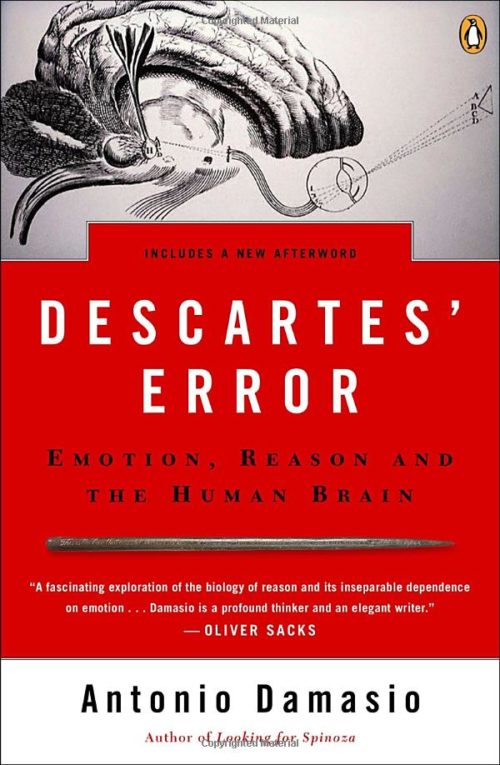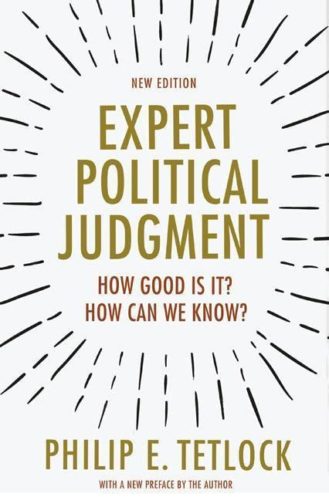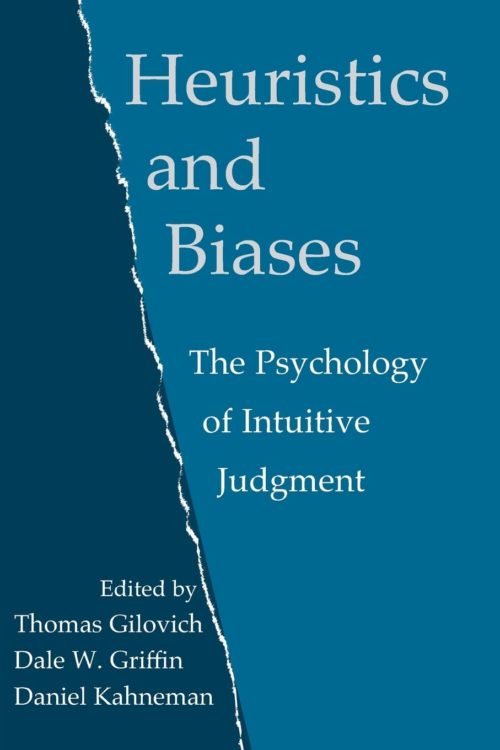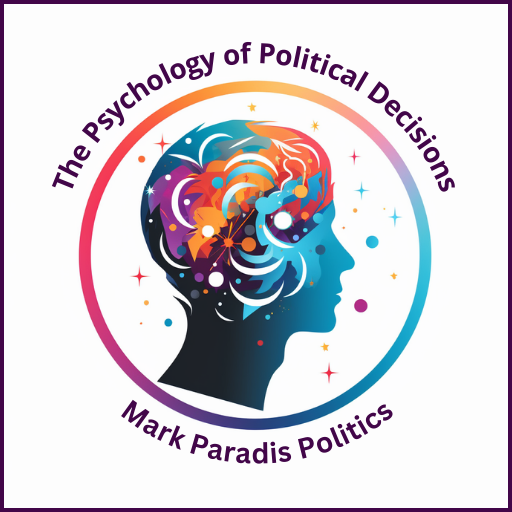Fighting On to Electoral Victory? College Football and Voting Behavior
- By Mark Paradis
- Published August 26, 2023
- No Comments
Introduction
College football is back! For millions of Americans—and certainly more than a few Canadians—this is a source of great excitement. And for others… well I can just imagine the wry smile that one of my good friends would make as she exclaims derisively that “sports ball” is back. The start of the season brings so much excitement. All fanbases across the country still have hope (perhaps even UMass). In honor of college football’s return, I think it appropriate to have some fun looking at the effects of irrelevant events on politics. Specifically, can sporting events influence how people vote in elections? While college football results (or any other sporting event) likely won’t be the deciding factor in any election, they can have a statistically significant effect on how people vote and on their political opinions.
Carryover Emotions and Voting Behavior
Before we get to the fun of college football, we need to provide a bit of background. In Introducing Emotions in Politics, we examined how emotions and moods can affect judgments and decisions in unrelated situations.1Bechara, Antoine and Antonio R. Damasio. 2005. “The Somatic Marker Hypothesis: A Neural Theory of Economic Decision.” Games and Economic Behavior 52 (2): 336-372. https://doi.org/10.1016/j.geb.2004.06.010.2Forgas, Joseph P. 1995. “Mood and Judgment: The Affect Infusion Model (AIM).” Psychological Bulletin 117(1): 39-66. https://psycnet.apa.org/doi/10.1037/0033-2909.117.1.39.3Forgas, Joseph P., Simon M. Laham, and Patrick T. Vargas. 2005. “Mood Effects on Eyewitness Memory: Affective Influences on Susceptibility to Misinformation.” Journal of Experimental Social Psychology 41 (6): 574-588. https://doi.org/10.1016/j.jesp.2004.11.005.4Lerner, Jennifer S. and Dacher Keltner. 2000. “Beyond Valence: Toward a Model of Emotion-Specific Influences on Judgment and Choice.” Cognition and Emotion 14 (4): 473-493. https://doi.org/10.1080/026999300402763.5Lerner, Jennifer S. and Dacher Keltner. 2001. “Fear, Anger, and Risk.” Journal of Personality and Social Psychology 81 (1): 146-159. https://doi.org/10.1037/0022-3514.81.1.146.6Martin, Leonard L. and Gerald L. Clore. 2001. Theories of Mood and Cognition: A User’s Handbook. Hillsdale, NJ: Lawrence Erlbaum.7Schwarz, Norbert and Gerald L. Clore. 1983. “Mood, Misattribution, and Judgments of Well-Being: Informative and Directive Functions of Affective States.” Journal of Personality and Social Psychology 45 (3): 513-523. https://doi.org/10.1037/0022-3514.45.3.513. In other words, emotions produced in one situation can affect behavior in a completely unrelated situation.
In general, emotions are essential for good (rational) decision-making.8Bechara, Antoine and Antonio R. Damasio. 2005. “The Somatic Marker Hypothesis: A Neural Theory of Economic Decision.” Games and Economic Behavior 52 (2): 336-372. https://doi.org/10.1016/j.geb.2004.06.010.9Bechara, Antoine, Hanna Damasio, Daniel Tranel, and Antonio R. Damasio. 1997. “Deciding Advantageously Before Knowing the Advantageous Strategy.” Science 275 (5304): 1293-1295. https://www.science.org/doi/10.1126/science.275.5304.1293.10Damasio, Antonio R. 1994. Descartes’ Error: Emotion, Reason, and the Human Brain. New York: Penguin Books. Without emotions, we have no interests. We can gather all the relevant information and weigh each option, but without emotions, we don’t prefer a particular option. We also don’t know when enough is enough, and we need to make a final decision. Consider what happens when you purchase a new car. It can be a daunting process. There is so much information out there, and it is easy to get lost in it all. Thankfully, emotions help us out. They’ll give us a feeling about which information is most relevant to our personal decision. They’ll also tell us when we’ve wasted too much time and need to make a final decision. Without interests, decision-making is all but impossible.
However, emotions that are unrelated to our current decision can be disruptive. In Introducing Emotions in Politics, we used the example of driving. If you receive a phone call about a death in the family while driving, the emotions produced from this terrible news will likely have a negative effect on your driving behavior.11Bechara, Antoine and Antonio R. Damasio. 2005. “The Somatic Marker Hypothesis: A Neural Theory of Economic Decision.” Games and Economic Behavior 52 (2): 336-372. https://doi.org/10.1016/j.geb.2004.06.010, page 351. We need emotions to be successful drivers, but we need ones that help us to assess risks and manage dangers on the road.
While it might be more difficult to notice the disruptive effects of carryover emotions on our own decisions, think about your interactions with family, friends, co-workers, and strangers. You’ll often come away from an interaction with an impression of that person’s mood based on how they are behaving. A bank teller (yes, they still exist) shouldn’t treat you any differently based on how they are feeling that day, but they most surely do. The probability of your child giving you a hug after school shouldn’t be affected by how their day went (it isn’t your fault that Lucy didn’t want to sit with them at lunch), but it is. Our emotions, our moods carry over into different aspects of our lives.
How might this affect voting behavior? Scholars identify different ways that people might rationally approach voting decisions.12Healy, Andrew J., Neil Malhotra, and Cecilia Hyunjung Mo. 2010. “Irrelevant Events Affect Voters’ Evaluations of Government Performance.” PNAS 107 (29): 12804-12809. https://www.pnas.org/doi/abs/10.1073/pnas.1007420107, page 12804 First, voters might evaluate the policy platforms of the different candidates and choose the candidate that best matches their interests. Second, voters might evaluate the incumbent’s performance while in office. Voting based on how you view the current government is called retrospective voting.13Fiorina, Morris P. 1981. Retrospective Voting in American National Elections. New Haven, CT: Yale University Press.14Healy, Andrew and Neil Malhotra. 2013. “Retrospective Voting Reconsidered.” Annual Review of Political Science 16: 285-306. https://doi.org/10.1146/annurev-polisci-032211-212920.15Page, Benjamin I. and Robert Y. Shapiro. 1992. The Rational Public: Fifty Years of Trends in Americans’ Policy Preferences. Chicago: University of Chicago Press.
While political science and economics research is generally skeptical of voter rationality, most theories assume that voters are sufficiently rational to not allow irrelevant events to affect their decisions. However, research in political psychology shows that emotions that are unrelated to voting decisions can affect both policy evaluations and retrospective voting. For example, when evaluating others, people who believe that things are going well (or bad) spend more time focusing on the good (or bad) characteristics of other people and situations 16Forgas, Joseph P. 1995. “Mood and Judgment: The Affect Infusion Model (AIM).” Psychological Bulletin 117(1): 39-66. https://psycnet.apa.org/doi/10.1037/0033-2909.117.1.39.17 Healy, Andrew J., Neil Malhotra, and Cecilia Hyunjung Mo. 2010. “Irrelevant Events Affect Voters’ Evaluations of Government Performance.” PNAS 107 (29): 12804-12809. https://www.pnas.org/doi/abs/10.1073/pnas.1007420107, page 12804 Similarly, when someone is in a good mood, they remember events more favorably and interpret their current situation more favorably than when they are in a bad mood.18 Isen, Alice M., Thomas E. Shalker, Margaret Clark, and Lynn Karp. 1978. “Affect, Accessibility of Material in Memory, and Behavior: A cognitive loop?” Journal of Personality and Social Psychology 36 (1): 1-12. https://psycnet.apa.org/doi/10.1037/0022-3514.36.1.1. When someone is sad, they are more likely to believe that events are caused by factors beyond someone’s control.19Keltner, Dacher, Phoebe C. Ellsworth, and Kari Edwards. 1993. “Beyond Simple Pessimism: Effects of Sadness and Anger on Social Perception.” Journal of Personality and Social Psychology 64 (3): 740-752. https://doi.org/10.1037/0022-3514.64.5.740, pages 743-745. They are less likely to blame others for negative outcomes. Conversely, when someone is angry, they are more likely to believe that events (even those unrelated to their anger) are to be blamed on others.
Unless a voter is examining only one candidate’s policy platform, carryover emotions are unlikely to have a large effect on voting decisions based on policy evaluations. However, it can have a profound impact on retrospective voting. With retrospective voting, the voter is only evaluating the party/candidate currently in power. While the examples above are only a limited sample of the different effects that emotions can have on voting, it still allows us to reach some conclusions. First, consider whether the person is in a good or a bad mood. If a voter is in a good mood, they would be more likely to focus on positive memories from the current government’s time in office and to evaluate their current situation more favorably. In other words, people will be more likely to remember the good times and to focus on the good parts of their lives. If a voter is in a bad mood, they are more likely to focus on negative memories and to evaluate their current situation more negatively.
The effects of negative emotions and moods on voting will depend on whether the person is angry or sad. If the voter is angry, they are likely to blame the current government for policy failures and for their current negative situation. However, if the voter is sad, they are more likely to concede that the policy failures and their current situation were beyond the control of the government. For angry voters, the likelihood of them voting for the incumbent is greatly decreased. For sad voters, the effects are less clear. On the one hand, they are focused on negative memories and have a negative view of their current situation. On the other hand, they are likely to believe that this situation would be the same no matter who is in power. The important takeaway is that a voter is likely to evaluate the performance of a politician/government differently from day to day and that this difference has more to do with their mood than with changes in their actual life circumstances (e.g., career, finances, health, family situation, values, interests, etc.).
College Football and Voting Behavior
Research has shown that irrelevant information in many areas of life affects political approval ratings and voting behavior. Andrew Healy, Neil Malhotra, and Cecilia Hyunjung Mo extended the logic of carryover emotions to college sports.20Healy, Andrew J., Neil Malhotra, and Cecilia Hyunjung Mo. 2010. “Irrelevant Events Affect Voters’ Evaluations of Government Performance.” PNAS 107 (29): 12804-12809. https://www.pnas.org/doi/abs/10.1073/pnas.1007420107. College sports, and sports in general, are a perfect case study. Sports are, for the most part, unrelated to public affairs (even if some former coaches and players believe themselves to be politicians). They also clearly influence moods within a community.21Healy, Andrew J., Neil Malhotra, and Cecilia Hyunjung Mo. 2010. “Irrelevant Events Affect Voters’ Evaluations of Government Performance.” PNAS 107 (29): 12804-12809. https://www.pnas.org/doi/abs/10.1073/pnas.1007420107, page 12804. Looking at college football, they found that games held 3 days and 10 days before an election affect election outcomes (since games are generally held on Saturdays and elections in the U.S. are generally held on Tuesdays, the closest games would be 3 and 10 days before an election). When a local team wins before an election, the incumbent receives a voting boost between 0.80 and 1.13 percentage points. While not a huge change, this could be important in a very tight election. In a follow-up study, Ethan Busby, James Druckman, and Alexandria Fredendall find evidence to support the conclusion that changes in voting behavior are caused by changes in mood.22 Busby, Ethan C., James N. Druckman, and Alexandria Fredendall. 2016. “The Political Relevance of Irrelevant Events.” The Journal of Politics 79 (1): 346-350. https://www.journals.uchicago.edu/doi/full/10.1086/688585.
Outside of voting, research also shows that the results of sporting events can affect political approval ratings.23Busby, Ethan C., James N. Druckman, and Alexandria Fredendall. 2016. “The Political Relevance of Irrelevant Events.” The Journal of Politics 79 (1): 346-350. https://www.journals.uchicago.edu/doi/full/10.1086/688585.24Healy, Andrew J., Neil Malhotra, and Cecilia Hyunjung Mo. 2010. “Irrelevant Events Affect Voters’ Evaluations of Government Performance.” PNAS 107 (29): 12804-12809. https://www.pnas.org/doi/abs/10.1073/pnas.1007420107. While approval ratings are less important than actual voting behavior, approval ratings do affect policy choices to varying degrees.25Barbera, Pablo, Andreij Casas, Jonathan Nagler, Patrick J. Egan, Richard Bonneau, John T. Jost, and Joshua A. Tucker. 2019. “Who Leads? Who Follows? Measuring Issue Attention and Agenda Setting by Legislators and the Mass Public Using Social Media Data.” American Political Science Review 113 (4): 883-901. https://doi.org/10.1017/S0003055419000352.26Canes-Wrone, Brandice. 2015. “From Mass Preferences to Policy.” Annual Review of Political Science 18: 147-165. https://www.annualreviews.org/doi/full/10.1146/annurev-polisci-050311-165552.27Canes-Wrone, Brandice and Kenneth W. Shotts. 2004. “The Conditional Nature of Presidential Responsiveness to Public Opinion.” American Journal of Political Science 48 (4): 690-706. https://doi.org/10.1111/j.0092-5853.2004.00096.x. Healy, Malhotra, and Mo conducted a survey experiment among fans of teams that reached the Elite Eight and Final Four during March Madness. Half of the participants were told that their team would win the next game, while half of the respondents were given no information. Again, the President plays no role in the outcome of March Madness matches (even if President Obama often made better brackets than I did). President Obama’s approval ratings were about 2.3 percentage points higher among those fans who were told the outcome of the next games. And among strong supporters, the effect rose to 5.0 percentage points. These increases were found even though the games hadn’t been played yet. The researchers couldn’t possibly know the outcomes.
For their part, Busby, Druckman, and Fredendall conducted an experiment around the 2015 College Football Playoff National Championship game.28Busby, Ethan C., James N. Druckman, and Alexandria Fredendall. 2016. “The Political Relevance of Irrelevant Events.” The Journal of Politics 79 (1): 346-350. https://www.journals.uchicago.edu/doi/full/10.1086/688585. The game involved teams from the Ohio State University and the University of Oregon. Students at both schools completed a survey on social and political issues in the days before and after the game. This allows us to see how winning and losing the game will affect student attitudes. For the winning team (Ohio State), presidential approval rose from 4.18 to 4.63 on a 7-point scale (with 7 being the highest level of approval). Conversely, for the losing team (Oregon), presidential approval fell from 4.56 to 4.12. There were no significant political events between the two surveys that could explain these changes. These increases (and decreases) in approval ratings coincide with increases (and decreases) in student moods. Winning puts you in a good mood, which makes you evaluate the president more positively. Losing puts you in a bad mood, which makes you evaluate the president more negatively. Once moods return to normal, the changes in approval ratings disappear.29Busby, Ethan C., James N. Druckman, and Alexandria Fredendall. 2016. “The Political Relevance of Irrelevant Events.” The Journal of Politics 79 (1): 346-350. https://www.journals.uchicago.edu/doi/full/10.1086/688585, page 348.
Some Controversy
It wouldn’t be sports (or politics) if there wasn’t some controversy. These findings aren’t without their detractors. While there is little question that irrelevant events can influence political decisions (including voting), there are some questions about some of these specific results.
In a reassessment of the evidence presented by Healy, Malhotra, and Mo, scholars Anthony Fowler and B. Pablo Montagnes call into question the effect of college football on elections. In their critique, they acknowledge that the original authors “used a credible research design and followed the best practices in their field.”30Fowler, Anthony and B. Pablo Montagnes. 2015. “College Football, Elections, and False-Positive Results in Observational Research.” PNAS 112 (45): 13800-13804. https://doi.org/10.1073/pnas.150261511, page 13803.31Healy, Andrew J., Neil Malhotra, and Cecilia Hyunjung Mo. 2010. “Irrelevant Events Affect Voters’ Evaluations of Government Performance.” PNAS 107 (29): 12804-12809. https://www.pnas.org/doi/abs/10.1073/pnas.1007420107. They argue that while the researchers did a good job, the reassessment would suggest that bad luck produced a false positive result. By the very nature of statistical significance tests—which are the standard measurement for determining positive results—false positives will sometimes happen. In a future article, I’ll go more in-depth on statistical significance.
So, do college football results affect approval and voting? The evidence appears mixed. On the positive side, the original findings by Healy, Malhotra, and Mo—and a replication by Matthew Graham, Gregory Huber, Neil Malhotra, and Cecilia Mo—as well as the experiment by Busby, Druckman, and Fredendall suggest that college football may affect political approval and voting.32Healy, Andrew J., Neil Malhotra, and Cecilia Hyunjung Mo. 2010. “Irrelevant Events Affect Voters’ Evaluations of Government Performance.” PNAS 107 (29): 12804-12809. https://www.pnas.org/doi/abs/10.1073/pnas.1007420107.33Graham, Matthew H., Gregory A. Huber, Neil Malhotra, and Cecilia Hyunjung Mo. 2023. “Irrelevant Events and Voting Behavior: Replications Using Principles from Open Science.” The Journal of Politics 85 (1): 296-303. https://www.journals.uchicago.edu/doi/10.1086/714761.34Busby, Ethan C., James N. Druckman, and Alexandria Fredendall. 2016. “The Political Relevance of Irrelevant Events.” The Journal of Politics 79 (1): 346-350. https://www.journals.uchicago.edu/doi/full/10.1086/688585. Moreover, the results are consistent with findings on the effects of professional sports team records on voting in mayoral elections.35Miller, Michael K. 2013. “For the Win! The Effect of Professional Sports Records on Mayoral Elections.” Social Science Quarterly 94 (1): 59-78. https://onlinelibrary.wiley.com/doi/10.1111/j.1540-6237.2012.00898.x. On the negative side, Fowler and Montagnes suggest that, at least the original study by Healy, Malhotra, and Mo, is a false positive and that there is no evidence of an effect.36Healy, Andrew J., Neil Malhotra, and Cecilia Hyunjung Mo. 2010. “Irrelevant Events Affect Voters’ Evaluations of Government Performance.” PNAS 107 (29): 12804-12809. https://www.pnas.org/doi/abs/10.1073/pnas.1007420107.37Fowler, Anthony and B. Pablo Montagnes. 2015. “College Football, Elections, and False-Positive Results in Observational Research.” PNAS 112 (45): 13800-13804. https://doi.org/10.1073/pnas.150261511.38Fowler, Anthony and B. Pablo Montagnes. 2023. “Distinguishing Between False Positives and Genuine Results: The Case of Irrelevant Events and Elections.” The Journal of Politics 85 (1): 304-309. https://www.journals.uchicago.edu/doi/10.1086/719636.
Concluding Remarks
While emotions are necessary for reaching rational decisions, they can also carryover to affect decisions in unrelated situations. As college football season returns, we revisit research that demonstrates that college football, college basketball, and professional sports can have an effect on political approval ratings and on voting. There is some debate about (at least) some of the results. These are all highly skilled researchers, and I haven’t personally replicated any of the findings myself, so I’ll leave the researchers to continue the debate into overtime. However, I will share some of my thoughts (as any good Monday morning quarterback would).
I’m inclined to believe that there is some (small) effect at play. First, the argument makes sense theoretically to me. When evaluating research, we don’t just look at the results, but we also look at the logic of the argument. Research has shown that there are many ways that people are affected by moods and emotions that are unrelated to their current decisions. And if you are a college football fan, live in a college town, watch SportsCenter, or visit a bar on a Saturday, you know that college football (and sports in general) can produce strong emotional reactions and greatly affect a fan’s mood. For me, I can’t concentrate AT ALL for about a day-and-a-half after a big win, and I need to bury myself in work after a big loss.
Second, while sensational titles from the media like “Will Ohio State’s Football Team Decide Who Wins the White House?” from Slate and “O-H-I-O: Why an Ohio State (Football) Win Boosts Obama” from USA Today suggest that college football results, particularly in key swing states, could decide an election, we are dealing with substantively small effects on voting results.39Cowen, Tyler and Kevin Grier. 2012. “Will Ohio State’s Football Team Decide Who Wins the White House?” Slate, October 24. https://slate.com/news-and-politics/2012/10/battleground-states-could-mitt-romney-lose-ohio-because-of-the-buckeyes-football-team.html.40USA Today. 2012.. “O-H-I-O: Why an Ohio State (Football) Win Boosts Obama.” November 3. https://www.usatoday.com/story/news/politics/2012/11/03/obama-college-football/1678455/. While any effect can influence a very tight election, it is very unlikely that college football (or any other sport) would be the deciding factor in an election. And to be honest, none of the scholars are making the claim that they would.
Did you enjoy the article? Consider sharing with your friends.
References
Barbera, Pablo, Andreij Casas, Jonathan Nagler, Patrick J. Egan, Richard Bonneau, John T. Jost, and Joshua A. Tucker. 2019. “Who Leads? Who Follows? Measuring Issue Attention and Agenda Setting by Legislators and the Mass Public Using Social Media Data.” American Political Science Review 113 (4): 883-901. https://doi.org/10.1017/S0003055419000352.
Bechara, Antoine and Antonio R. Damasio. 2005. “The Somatic Marker Hypothesis: A Neural Theory of Economic Decision.” Games and Economic Behavior 52 (2): 336-372. https://doi.org/10.1016/j.geb.2004.06.010.
Bechara, Antoine, Hanna Damasio, Daniel Tranel, and Antonio R. Damasio. 1997. “Deciding Advantageously Before Knowing the Advantageous Strategy.” Science 275 (5304): 1293-1295. https://www.science.org/doi/10.1126/science.275.5304.1293.
Busby, Ethan C., James N. Druckman, and Alexandria Fredendall. 2016. “The Political Relevance of Irrelevant Events.” The Journal of Politics 79 (1): 346-350. https://www.journals.uchicago.edu/doi/full/10.1086/688585.
Canes-Wrone, Brandice. 2015. “From Mass Preferences to Policy.” Annual Review of Political Science 18: 147-165. https://www.annualreviews.org/doi/full/10.1146/annurev-polisci-050311-165552.
Canes-Wrone, Brandice and Kenneth W. Shotts. 2004. “The Conditional Nature of Presidential Responsiveness to Public Opinion.” American Journal of Political Science 48 (4): 690-706. https://doi.org/10.1111/j.0092-5853.2004.00096.x.
Cowen, Tyler and Kevin Grier. 2012. “Will Ohio State’s Football Team Decide Who Wins the White House?” Slate, October 24. https://slate.com/news-and-politics/2012/10/battleground-states-could-mitt-romney-lose-ohio-because-of-the-buckeyes-football-team.html.
Damasio, Antonio R. 1994. Descartes’ Error: Emotion, Reason, and the Human Brain. New York: Penguin Books.
Fiorina, Morris P. 1981. Retrospective Voting in American National Elections. New Haven, CT: Yale University Press.
Forgas, Joseph P. 1995. “Mood and Judgment: The Affect Infusion Model (AIM).” Psychological Bulletin 117(1): 39-66. https://psycnet.apa.org/doi/10.1037/0033-2909.117.1.39.
Forgas, Joseph P. 2000. “Feeling Is Believing? The Role of Processing Strategies in Mediating Affective Influences on Beliefs.” In Emotions and Beliefs: How Feelings Influence Thoughts, edited by Nico H. Frijda, Antony S. R. Manstead, and Sacha Bem, 108-144. Cambridge, UK: Cambridge University Press.
Forgas, Joseph P., Simon M. Laham, and Patrick T. Vargas. 2005. “Mood Effects on Eyewitness Memory: Affective Influences on Susceptibility to Misinformation.” Journal of Experimental Social Psychology 41 (6): 574-588. https://doi.org/10.1016/j.jesp.2004.11.005.
Fowler, Anthony and B. Pablo Montagnes. 2015. “College Football, Elections, and False-Positive Results in Observational Research.” PNAS 112 (45): 13800-13804. https://doi.org/10.1073/pnas.150261511.
Fowler, Anthony and B. Pablo Montagnes. 2023. “Distinguishing Between False Positives and Genuine Results: The Case of Irrelevant Events and Elections.” The Journal of Politics 85 (1): 304-309. https://www.journals.uchicago.edu/doi/10.1086/719636.
Graham, Matthew H., Gregory A. Huber, Neil Malhotra, and Cecilia Hyunjung Mo. 2023. “Irrelevant Events and Voting Behavior: Replications Using Principles from Open Science.” The Journal of Politics 85 (1): 296-303. https://www.journals.uchicago.edu/doi/10.1086/714761.
Healy, Andrew and Neil Malhotra. 2013. “Retrospective Voting Reconsidered.” Annual Review of Political Science 16: 285-306. https://doi.org/10.1146/annurev-polisci-032211-212920.
Healy, Andrew J., Neil Malhotra, and Cecilia Hyunjung Mo. 2010. “Irrelevant Events Affect Voters’ Evaluations of Government Performance.” PNAS 107 (29): 12804-12809. https://www.pnas.org/doi/abs/10.1073/pnas.1007420107.
Isen, Alice M., Thomas E. Shalker, Margaret Clark, and Lynn Karp. 1978. “Affect, Accessibility of Material in Memory, and Behavior: A cognitive loop?” Journal of Personality and Social Psychology 36 (1): 1-12. https://psycnet.apa.org/doi/10.1037/0022-3514.36.1.1.
Keltner, Dacher, Phoebe C. Ellsworth, and Kari Edwards. 1993. “Beyond Simple Pessimism: Effects of Sadness and Anger on Social Perception.” Journal of Personality and Social Psychology 64 (3): 740-752. https://doi.org/10.1037/0022-3514.64.5.740.
Lerner, Jennifer S. and Dacher Keltner. 2000. “Beyond Valence: Toward a Model of Emotion-Specific Influences on Judgment and Choice.” Cognition and Emotion 14 (4): 473-493. https://doi.org/10.1080/026999300402763.
Lerner, Jennifer S. and Dacher Keltner. 2001. “Fear, Anger, and Risk.” Journal of Personality and Social Psychology 81 (1): 146-159. https://doi.org/10.1037/0022-3514.81.1.146.
Martin, Leonard L. and Gerald L. Clore. 2001. Theories of Mood and Cognition: A User’s Handbook. Hillsdale, NJ: Lawrence Erlbaum.
Miller, Michael K. 2013. “For the Win! The Effect of Professional Sports Records on Mayoral Elections.” Social Science Quarterly 94 (1): 59-78. https://onlinelibrary.wiley.com/doi/10.1111/j.1540-6237.2012.00898.x.
Page, Benjamin I. and Robert Y. Shapiro. 1992. The Rational Public: Fifty Years of Trends in Americans’ Policy Preferences. Chicago: University of Chicago Press.
Schwarz, Norbert and Gerald L. Clore. 1983. “Mood, Misattribution, and Judgments of Well-Being: Informative and Directive Functions of Affective States.” Journal of Personality and Social Psychology 45 (3): 513-523. https://doi.org/10.1037/0022-3514.45.3.513.
USA Today. 2012.. “O-H-I-O: Why an Ohio State (Football) Win Boosts Obama.” November 3. https://www.usatoday.com/story/news/politics/2012/11/03/obama-college-football/1678455/.
Comments
Recent Posts
Fighting On to Electoral Victory? College Football and Voting Behavior
Discover how college football and sporting events can subtly sway political opinions and voting behavior. Explore the intriguing link between mood, emotions, and decision-making, and learn about the potential impact of seemingly unrelated events on politics. Dive into the debate surrounding these effects and gain fresh insights into the world of voter psychology.
Introducing Emotions in Politics
This article introduces the important role of emotions in political decision-making. Rather than sources of error, emotions are necessary for rational decisions. We explore this important function of emotions, the role of specific emotions in politics, the surprising effect of emotions on unrelated decisions, and the role of emotions in political campaigns.
Our Brain’s Inner Politician Limits Democratic Accountability: The Human Mind Prioritizes Rationalization Over Truth
To protect our social status, our brains prioritize rationalizing our actions over finding the truth. Accountability sometimes activates truth-seeking, but only under limited circumstances. This poses challenges for democratic accountability.
Suggested Books
Showing 1–4 of 23 results
-
Democracy For Realists: Why Elections Do Not Produce Responsive Government
Political Psychology View on AmazonAuthors: Christopher H. Achen and Larry M. Bartels
Year: 2016
Publisher: Princeton University Press -
Descartes’ Error: Emotion, Reason, and the Human Brain
Psychology View on AmazonAuthor: Antonio Damasio
Year: 1994
Publisher: Penguin Books -
Expert Political Judgment: How Good Is It? How Can We Know? (New Edition)
Political Psychology View on AmazonAuthor: Philip E. Tetlock
Year: 2017
Publisher: Princeton University Press -
Heuristics and Biases: The Psychology of Intuitive Judgment
Psychology View on AmazonEditors: Thomas Gilovich, Dale W. Griffin, and Daniel Kahneman
Year: 2002
Publisher: Cambridge University Press

